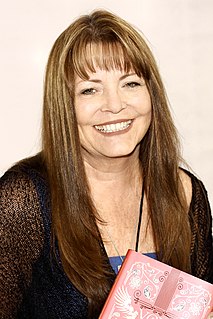A Quote by Marcel Duchamp
It is curious to note how fragile the memory is, even for the important times in one's life. This is, moreover, what explains the fortunate fantasy of history.
Related Quotes
Most of our difficulties, our hopes, and our worries are empty fantasies. Nothing has ever existed except this moment. That's all there is. That's all we are. Yet most human beings spend 50 to 90 percent or more of their time in their imagination, living in fantasy. We think about what has happened to us, what might have happened, how we feel about it, how we should be different, how others should be different, how it's all a shame, and on and on; it's all fantasy, all imagination. Memory is imagination. Every memory that we stick to devastates our life.
It is curious how sometimes the memory of death lives on for so much longer than the memory of the life that it purloined. Over the years, as the memory of Sophie Mol ... slowly faded, the Loss of Sophie Mol grew robust and alive. It was always there. Like a fruit in season. Every season. As permanent as a government job.
It is true that one of the first acts of tyrants is to erase history, to wipe out the recorded memory of a people. With that in mind, it's important to remember that the work that we do as writers, artists and performers will form an essential part of the collective memory that future generations will draw upon. And so we owe it to those future generations to defend that memory and be honest witnesses to our times.
I have been especially fortunate for about 50 years in having two memory banks available-whenever I can't remember something I ask my wife, and thus I am able to draw on this auxiliary memory bank. Moreover, there is a second way In which I get ideas ... I listen carefully to what my wife says, and in this way I often get a good idea. I recommend to ... young people ... that you make a permanent acquisition of an auxiliary memory bank that you can become familiar with and draw upon throughout your lives.
Gunn would be an important figure-rewarding, delightful, accomplished, enduring-in the history of English-language poetry even were his life not as fascinating as it now seems; he would be an important figure in the history of gay writing and in the history of transatlantic literary relations even were his poetry not so good as it is. With his life as it was and his works as they are, he's an obvious candidate for a volume of retrospective and critical essays, and this one is first-rate.
The feeling that was born that night, how could i describe it?Words like love or lust just don't seem right. I may call it jealousy, or may be anxiety and moreover, need. Even now I'm anxious at times because when I am with Ren, everything around feels like a dream. That was how Ren turned my boring life into an illusion, and that was too much for no matter how hard i tried, it seemed I could never catch him.
My memory is coming back. It is curious how it comes. Each day, a rush of pieces, loosely connected, unimportant bits, snake through me. They click, click, click into my brain, like links being snapped together. And then they are done. A small chain of memories that fill in one tiny part of my life. They come out of nowhere, and most are not important.
You could make a good case that the history of social life is about the history of the technology of memory. That social order and control, structure of governance, social cohesion in states or organizations larger than face-to-face society depends on the nature of the technology of memory - both how it works and what it remembers. In short, what societies value is what they memorize, and how they memorize it, and who has access to its memorized form determines the structure of power that the society represents and acts from.
I am opposing it with an idea of the history of philosophy as a history of philosophers, that is, a history of mortal, fragile and limited creatures like you and I. I am against the idea of clean, clearly distinct epochs in the history of philosophy or indeed in anything else. I think that history is always messy, contingent, plural and material. I am against the constant revenge of idealism in how we think about history.







































